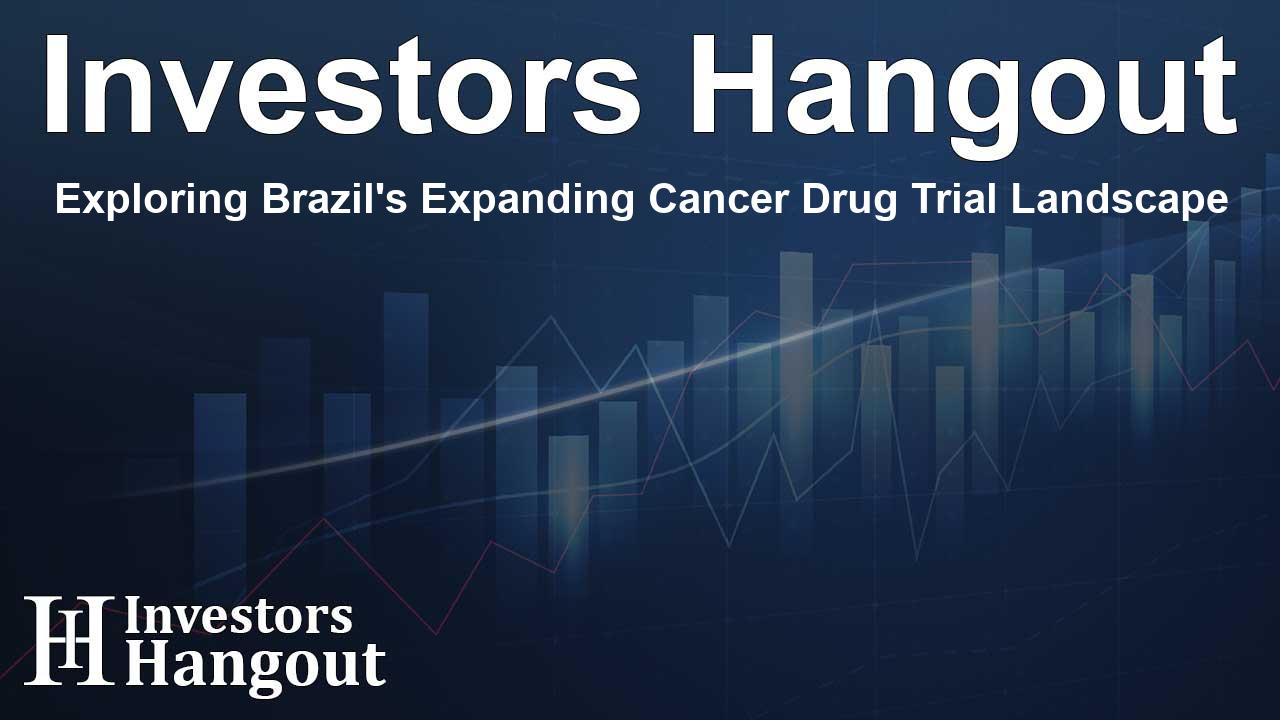Exploring Brazil's Expanding Cancer Drug Trial Landscape

The Growth of Cancer Drug Trials in Brazil
Brazil's cancer drug clinical trial landscape has experienced remarkable evolution, establishing the nation as a crucial participant in global oncology research. As the largest country in Latin America, Brazil boasts over 215 million residents and a diverse genetic pool. This unique environment presents opportunities for groundbreaking clinical trials in cancer research.
Diverse Patient Population
The Brazilian healthcare system, which integrates both public and private sectors, allows researchers to access a wide variety of patient populations. This diversity is critical in cancer research, where genetic and environmental factors significantly impact treatment outcomes. Urban centers like Rio de Janeiro, São Paulo, and Porto Alegre serve as focal points for clinical research with their high-quality medical facilities and research institutions.
High Cancer Incidence Drives Research
One of the primary factors behind Brazil's increasing involvement in cancer drug trials is its substantial cancer burden. In recent estimates, the country recorded approximately 630,000 new cancer cases in one year, with projections to exceed 750,000 by the next decade. This urgent need for innovative treatments has fueled a strong impetus for conducting oncology trials. Common cancer types in Brazil, such as breast, prostate, colorectal, and lung cancers, align with international research trends.
Streamlined Regulatory Environment
The regulatory framework for clinical trials in Brazil is witnessing considerable improvements. The Agência Nacional de Vigilância Sanitária (ANVISA) has implemented changes that reduce approval timelines for trials, simplifying the initiation process. Furthermore, the establishment of the Rede Nacional de Pesquisa Clínica (RNPC) facilitates the execution of multicenter trials nationwide, making Brazil an appealing option for international pharmaceutical companies.
International Collaboration and Expertise
Brazil's engagement in international research collaborations significantly strengthens its role in cancer drug trials. The nation is becoming increasingly involved in important phase III trials, granting Brazilian patients access to new experimental therapies. This participation not only enhances global drug development but also fosters local expertise and creates robust infrastructures for conducting complex oncology trials.
Government Support for Cancer Research
The Brazilian government actively supports cancer research initiatives through programs such as the National Policy for Cancer Care (PNAO), aiming to improve cancer care across the nation. This policy includes measures that support clinical research and encourages partnerships between public institutions and private organizations to bolster cancer drug development.
Challenges in Clinical Trials
Despite the positive trends, challenges persist in Brazil’s clinical trial arena. Disparities in healthcare access and quality between urban and rural regions can impact patient recruitment and trial execution. Additionally, language barriers and the need to translate trial documents further complicate international studies. Navigating the Brazilian regulatory system, though more straightforward than before, can still pose challenges for foreign sponsors unfamiliar with local processes.
Emergence of Biosimilars
A significant aspect shaping Brazil's cancer drug trials is the rising focus on biosimilars and generics. With patents of several crucial oncology drugs expiring, Brazil is quickly emerging as a vital market for biosimilar development. This focus complements the country's objectives of enhancing access to cancer treatment while lowering healthcare costs.
Future Prospects
Looking to the future, Brazil's clinical trial landscape for cancer drugs holds promising growth potential. The nation's substantial and diverse patient base, along with a progressive regulatory environment, paints a bright picture for global cancer drug development. Increased investments in research infrastructure and capabilities are positioning Brazil to have an even more significant impact on advancing cancer treatments worldwide.
Frequently Asked Questions
1. What is the current status of cancer drug trials in Brazil?
Brazil is becoming a key player in oncology research with numerous clinical trials actively underway, due to its diverse patient population and improving regulatory environment.
2. How does Brazil's healthcare system impact cancer research?
The mixed public and private healthcare systems provide a broad access to various patient demographics, which enhances the quality of cancer research conducted.
3. What role does ANVISA play in clinical trials?
ANVISA streamlines the approval process for clinical trials, significantly reducing timelines, thereby attracting more international pharmaceutical companies.
4. Are biosimilars significant in Brazil's cancer trials?
Yes, as patents for key oncology drugs expire, the focus on biosimilars presents opportunities for enhancing patient access and reducing treatment costs.
5. What future trends can be expected in Brazil’s cancer research?
Brazil is likely to see continued investment in research, advanced regulatory frameworks, and increased participation in international studies, enhancing its role in global oncology.
About Investors Hangout
Investors Hangout is a leading online stock forum for financial discussion and learning, offering a wide range of free tools and resources. It draws in traders of all levels, who exchange market knowledge, investigate trading tactics, and keep an eye on industry developments in real time. Featuring financial articles, stock message boards, quotes, charts, company profiles, and live news updates. Through cooperative learning and a wealth of informational resources, it helps users from novices creating their first portfolios to experts honing their techniques. Join Investors Hangout today: https://investorshangout.com/
Disclaimer: The content of this article is solely for general informational purposes only; it does not represent legal, financial, or investment advice. Investors Hangout does not offer financial advice; the author is not a licensed financial advisor. Consult a qualified advisor before making any financial or investment decisions based on this article. The author's interpretation of publicly available data shapes the opinions presented here; as a result, they should not be taken as advice to purchase, sell, or hold any securities mentioned or any other investments. The author does not guarantee the accuracy, completeness, or timeliness of any material, providing it "as is." Information and market conditions may change; past performance is not indicative of future outcomes. If any of the material offered here is inaccurate, please contact us for corrections.